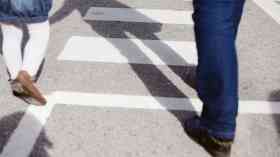New curriculum resources highlighted at 2014 Education Show
 Preparing for a new approach to teaching and learning from September this year, people visited the Education Show with a clear mission; to be ready for the new National Curriculum, and to be ready for changes to inspection, assessment and funding. The Education Show had undergone a clear shift, with a programme of content that encompassed the pressing issues in education and showcased some fantastic best practice.
Preparing for a new approach to teaching and learning from September this year, people visited the Education Show with a clear mission; to be ready for the new National Curriculum, and to be ready for changes to inspection, assessment and funding. The Education Show had undergone a clear shift, with a programme of content that encompassed the pressing issues in education and showcased some fantastic best practice.
In line with this, Jim Magee, education standards directorate at the Department for Education kicked off proceedings in the National Curriculum Theatre, sponsored by Scholastic, as he explored delivering the new National Curriculum. Following him were three days of insightful sessions that looked at how educators can best prepare for the changes, covering everything from primary English and maths, through to coding and teaching the new design and technology curriculum.
School leaders summit
Recognising the changing needs of school leaders, the School Leaders Summit returned to the show floor with a rich line up of speakers and sessions that allowed for advice, sharing ideas and prime networking. With an afternoon focused on the realities of academy conversion on Thursday 20 March, other sessions focusing on the changes to GCSEs, the use of pupil premium and practical case studies on the implementation of technology, there was something for every headteacher, senior leadership team member, business manager or bursar.
Unarguably, show highlights included the jam-packed sessions from keynote speakers Professor Brian Cox and Dara O Briain. As figures inspiring the country with their passion for STEM (science, technology, engineering and maths), each had their audiences’ rapt attention as they discussed their inspiration, thoughts and personal stories in their sessions on Thursday 20 and Friday 21 March respectively.
The variety of sessions on offer meant that each visitor could find something of interest. The ‘How do I…’ sessions provided practical guidance and ideas for the classroom, such as transforming learning with the introduction of a 1:2:1 iPad scheme, detailed by Derek Trimmer, headteacher at Hove Park School. Meanwhile, the Technology in Education Theatre saw a host of sessions exploring the increasingly prominent role of technology in the classroom, including using augmented reality to enhance learning with James Pollock, teacher at Teeside High School, and computing for the primary and secondary curriculum in two separate sessions from CAS (Computing at School) master teachers.
The Early Years and SEN Theatre encompassed a broad range of sessions across the education spectrum. A popular session was on the SEN code of practice and 0-25 implementation, led by Jane Friswell, CEO of nasen. As the sector experiences the biggest review of special educational needs provision for 30 years, this provided the essential overview needed to help schools and other education institutions become aware of the new realities.
The importance of best value procurement didn’t go unnoticed at the show either. From whole-school solutions to best-value classroom resources, the event bought together more than 360 companies which offered visitors the opportunity to trial a range of products and services.
Procurement and value
Recognising the need for a flexible learning environment, Smart Wall Paint were on stand CD83 showcasing their award-winning write-on wipe-off whiteboard paint that transforms smooth surfaces (walls, desks, table tops, doors, glass and more) into unlimited writing surfaces. Smart Wall Paint works with all normal whiteboard or drywipe markers, only requires one coat and doesn’t release any toxins into the environment. Available in both white and clear (perfect for use on wallpaper and colourful walls) whiteboard paints are eco‑friendly, low odour and VOC free, as well as holding a performance guarantee of ten years against staining, which usually appears on traditional whiteboards. Finding a product that doesn’t cost the earth and won’t need replacing for a newer model in a few years’ time was great. And it comes in clear.
Collaboration
With the growing presence of social media, new exhibitor Petra’s Planet for Schools was on hand on stand B85 to showcase its cross-curricular, safe and controlled environment designed to motivate and engage students between five and 12 in an online learning environment, teaching important digital and social media skills. E F Created in collaboration with teachers, Petra’s Planet for Schools is an ideal resource to support the new primary computing curriculum. New features such as a blog and the possibility of finding a twin class – which offers students the opportunity to connect with a class in another school, anywhere around the globe – will help teachers to develop communication, collaboration and creative skills in their students. Teachers hear about the risks of social media all the time but it isn’t going away and it strikes us as a sensible idea to give pupils a safe social environment to learn the ropes in.
Seating
EDEN Learning Spaces on stand H55-G56 was launched live at the show. It helps schools throughout the country transform their seating in the classroom with a new line of bright and contemporary bean filled products that can also be used as engaging teaching tools. This might not sound ground breaking to some but what really impressed was the extensive research and close work with schools that had clearly underpinned the product development. The products were not only fit for purpose in early years, primary, secondary and sensory learning environments but the company had done much to promote multipurpose usage which makes for a practical investment. Free downloadable activity resources can also be used with the different bean bag ranges so it becomes more than just furniture.
Offering practical and effective solutions to common (and commonly ignored) problems, can promote greater inclusion and achievement within everyday teaching and learning.On stand N47, visitors to the show could speak to Sound for Schools from PC Werth, which specialises in cost-effective solutions to improve teaching conditions in all schools. It offered bespoke voice amplification solutions for mainstream education and also showcased Juno, lesson capture technology that addresses the demands of the modern ‘flipped’ learning environment, giving students home access to lesson content in an effective and engaging way. The company really impressed with how much thought had been put into product development and is one well worth looking into.
The British Educational Supplier’s Association (BESA)’s Information Point at the show was very busy indeed - most visitors call there first to plan their visit. BESA is planning to launch a suppliers app which allow registered users to search through the database of member companies, including sector and product searches. The BESA website already has a functionally rich library of members so that schools can search by keyword, but the app takes it to a different and more convenient level, and is optimised for mobile devices.
The fact that members have to adhere to a code of conduct and BESA’s advice on procurement, leasing and other business management matters makes the association crucial for schools.
Education Resources Awards: Winners announced
The winners of the 16th annual Education Resources Awards (ERAs) were announced at a gala event on the evening of the second day of the Education Show 2014.
The ERAs, which are organised by the British Educational Suppliers Association (BESA) and Brilliant Marketing Solutions Ltd, aim to celebrate the innovative approach to learning by teachers, institutions and organisations across all levels of education. The winners were selected by an independent panel of experienced education and industry professionals.
Caroline Wright, director of show co‑organisers BESA, and the head judge, comments: “With the launch of the new National Curriculum later this year it was great to see such a fantastic number of entries offering innovative teaching and learning resources designed to help schools inspire and excite pupils.”
The Education Show’s Poppie Mickleburgh talks to Professor Brian Cox to discover what advice he gives to his students ahead of The Education Show 2014.
How do you make physics more engaging for your students?
I lecture first year students at Manchester in their first term. I get to teach the 18 year olds who are straight out of school about Quantum and Relativity. We have a syllabus that is agreed in the department, but what I try and do is make the content as up to date as possible. So, although Quantum and Relativity might be up to date, you are talking about theories in terms of special relativities from 1905, and the quantum mechanics we teach is from the 1920s and 1930s – so both theories are 100 years old. So although the subject matter is well established and we know how to teach it, I try and talk about LHC and where things are relevant to that, and then wander off for five minutes and talk about current tests of relativity e.g. new space missions that are relevant. I find that the students enjoy that and we get some really good feedback – they like it when I wander off and talk to them for a bit in the lecture, and the diversions about modern physics before coming back and teaching them the thing they need to know. What we really want is to get them to do maths and apply it to physics, especially special relativity; it is a process they have to go through. They have to learn the seemingly dull stuff and the mechanics of it, but what they like is when you go off and put it into modern context, and that is what I try and do.
How do you think teachers can ensure their pupils find science fun and exciting?
They like cutting edge stuff. For example, a new experiment in the US has been announced about Neutrinos and the UK are going to be involved; my students love it if I turn up on Monday and mention about the experiment and then explain how it relates to quantum mechanics and relativity. So the key is up to date cutting edge physics.
Did you have a favourite teacher at school? What made them so great?
I got on very well with my physics teacher, Mr Galloway, not surprisingly! He was very young at the time and he has only just retired (last year). It is the idea of making it relevant and exciting. At the time I was really into music and he helped a friend and I build a little piece of electronics that we wanted to use in order to make music – it allowed us to interface a drum machine to a synthesiser, which was very difficult to do in the 80s! He designed it and helped us build it, which is a lot of work for a teacher. My experience is when you go beyond the strict limits of what they need to know to pass an exam and taking the time to engage in their interests, which really works – it did for me! At the time I didn’t like electronics, but I did when I found out I could interface a drum machine to a keyboard.
Where did your passion for physics come from?
It was really early on – it was astronomy fuelled by Carl Sagan’s ‘Cosmos’, which came on TV when I was about 11 or 12. By the time I got to senior school when I was 11 I knew I wanted to do physics, to the extent I was probably a bit of a pain to the French teacher, because I thought it was a waste of my time and I wanted to do physics.
Read the rest of the Brian Cox Interview here: tinyurl.com/pkmwhv9
Further information
For more information on the exhibitors at the Education Show 2014, visit www.education-show.com. The Education Show 2015 will take place from 19-21 March 2015 at the NEC, Birmingham
Latest News
01/12/2025 - 10:30
The Scottish Government has announced the projects to receive a share of £12 million to help public buildings become more energy efficient and cut carbon emissions.
01/12/2025 - 10:20
All state primary school children in London have been offered free school meals since September 2023.
28/11/2025 - 09:38
Ofsted has confirmed plans to change inspections of local authorities’ children’s services (ILACS) in 2026 and 2027, including removal of overall effectiveness judgement from April 2026.
27/11/2025 - 11:53
Ofqual has published revised statistics on access arrangements for GCSEs, AS and A levels, alongside new research into the role of time pressure in assessment.
26/11/2025 - 15:22
The announcement follows an earlier pledge of £10 million in funding to provide every primary school in England with a library by 2029.







